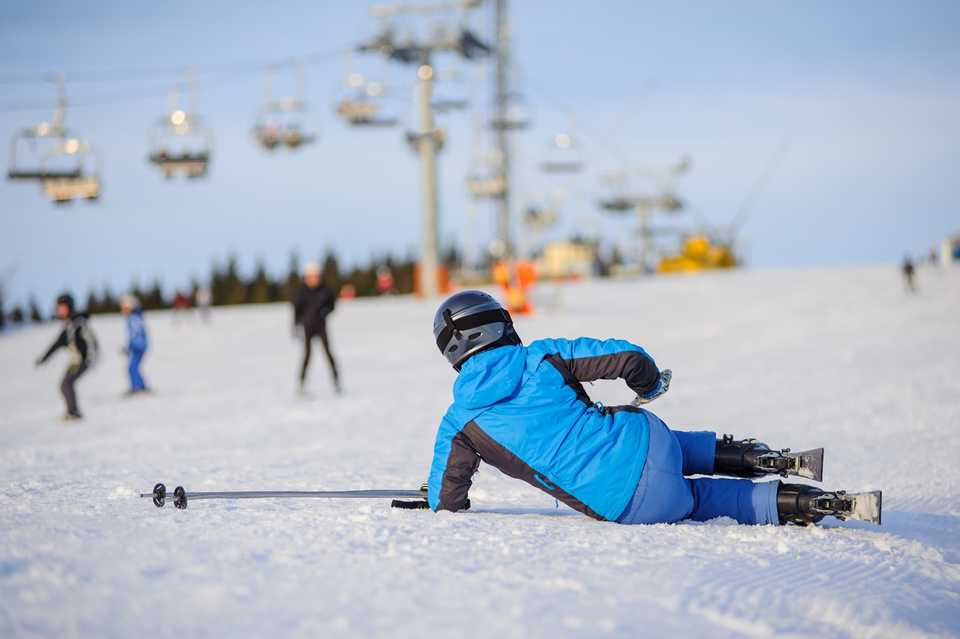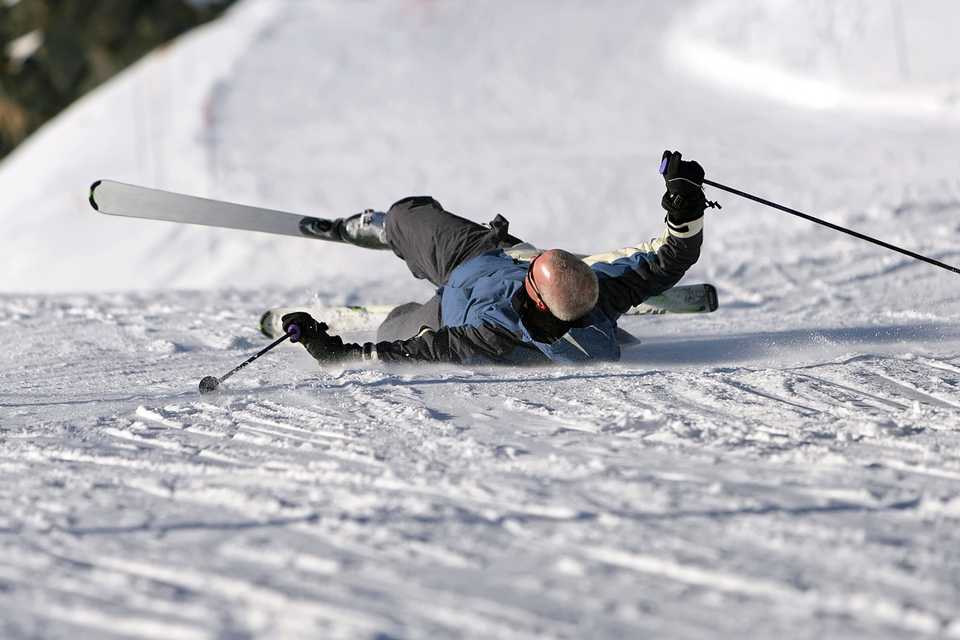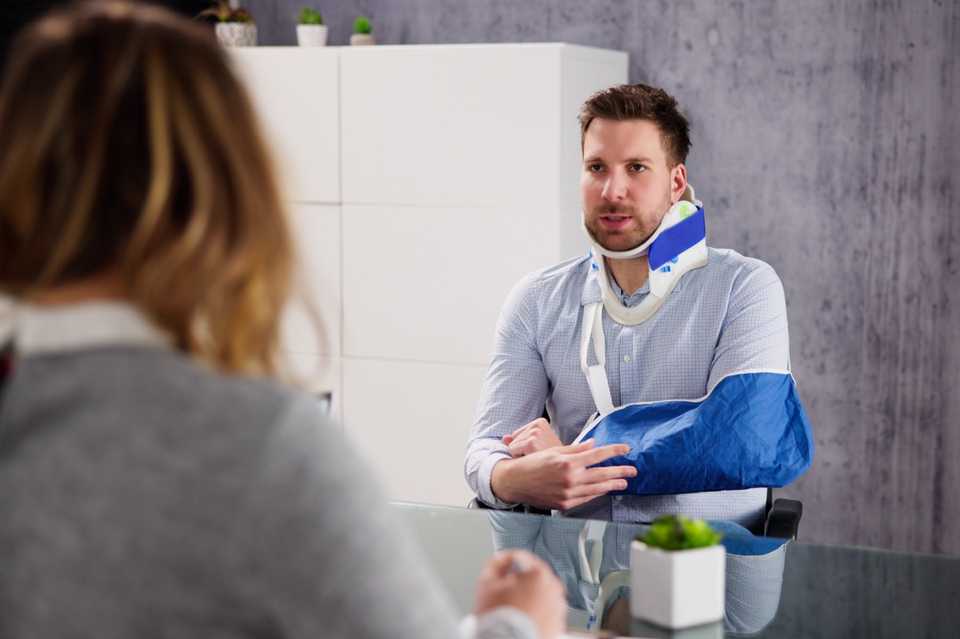With the winter season comes several sports that are associated with a certain level of risk, particularly skiing. This popular winter sport in Quebec is also the cause of multiple injuries.
Even if some injuries may be caused by a mistake on your part, it can happen that you are not at fault.

What can you do if someone else caused your accident? And what if it was the ski resort that caused your injury? In both cases, there are remedies available to force the person responsible to pay compensation to you.
JuriGo explains all the damages available to you in case of a skiing accident!
Attention - skiing involves risks!
Before initiating legal proceedings following an injury during your skiing day, it is important to understand that this type of sport involves a risk that you must accept.
Indeed, skiing is a sport that comes with a certain number of risks that you accept by practicing the sport (there are naturally more chances of getting injured while skiing than doing yoga).
If you happen to fall on a perfectly maintained ski trail and you suffer a fracture, it would be surprising if you could claim compensation from the ski center for this injury.
However, Article 1477 of the Civil Code specifies that even if there is an assumption of risk during a sports activity of this kind, this does not mean that you waive your right to compensation in case of harm against the author of the risk.
In fact, to accept a risk, certain criteria exist:
- You must be aware of its existence,
- It must be foreseeable, and
- It must not result from the fault of a third party.
If these three criteria are not present, there is a strong chance that your prejudice will be compensable!
Also, when it comes to risk acceptance, the judge will take into consideration several criteria, including
- Your experience,
- Your skills in the sport, and
- The presence of quality warnings about potential dangers.
Is your experience a determining factor?
In itself, experience is not a determining factor when it comes to accepting a risk. However, since it is necessary to be aware of the risk in question, it is obvious that an experienced skier with a good knowledge of the slope and perfect mastery of the sport will be better able to anticipate the risks associated with such a situation.
| Hold on a minute! That doesn't mean the beginner has carte blanche to do as they please! It is expected that the beginner skier pays particular attention to warnings and safety instructions. |
|---|
It is strongly recommended to be accompanied by an experienced skier or, failing that, to refer to an employee if you have any questions.

Certain criteria will be taken into account by the judge that normally differ between an experienced person and a beginner, including:
- The skier's age,
- The skier's experience,
- Their skills in a sport, and
- Their knowledge of the area.
It is important to understand that these criteria are not determining factors, but they allow to distinguish between ignorance that acceptance of risk does not cover and the recklessness of the skier!
By accepting the risks of skiing, are you also accepting those of the facilities?
It is possible to wonder if the risks associated with facilities (such as chairlifts) are part of the risks that a skier accepts by going to a ski resort.
Indeed, the mechanical services and means that are available to users of the resort for the practice of the sport are included in the risks that are inherent to skiing!
| Important! If these facilities are in poor condition or if supervision is negligent, the owner's responsibility and you may be compensated for damages suffered. |
|---|
This also applies to installations in general (including the ski slope). You do not have to accept risks if the slope is poorly maintained to the point where a part of it is completely devoid of snow and the center does not display any warnings.
By accepting the risks, what happens in case of a ski accident?
If a judge recognizes that the situation was within the risks you implicitly accepted, the compensation associated with your claim could be reduced or even cancelled if the damage is completely due to your fault.
However, these risks only apply to those considered normal in the practice of skiing and not to faults committed by a third party or an unusual malfunction. In these conditions, it is not a waiver of liability and you will naturally have the right to compensation for any damages suffered.
As a skier, here's what to expect from the ski resort owner
When you go skiing and you suffer an injury, there is no presumption that the responsibility lies with the ski resort owner!
However, there is an implicit obligation to ensure that certain measures are taken to ensure the safety of users. These measures must comply with the standards applicable to ski resorts in general and that ski slopes do not have any "traps".
We define a trap as a situation where the risk is hidden. For example, a block of ice concealed by a thin layer of snow that causes an ankle fracture. Also, just a piece of metal in a ski corridor without signaling the danger to users.

In this type of situation, the center has an obligation of surveillance and diligence. This is an obligation of means and therefore, it must take all reasonable measures!
True Story! In 2016, a skier received the sum of $36,046.67 following an ankle fracture. Indeed, the ski resort had to pay this amount because it did not post a warning indicating that the powder section posed a risk.
However, this amount represents only one third of what was requested, as the Court also ruled that the experienced skier should have known that at the beginning of the season, there was a risk that the edges of the slopes would be icy.
However, the ski resort does not have to warn and protect you from all risks. It must protect you from foreseeable dangers. Therefore, it will be responsible if a chairlift is poorly maintained, poorly monitored, or if there are no warnings regarding safety standards.
Another skier collides with you? They will be responsible for compensating you!
Other skiers and yourself have a duty to be cautious when deciding to participate in a risky sport like skiing.
As a skier, you have an obligation to respect the safety instructions of the ski resort as well as take reasonable precautions to ensure the safety of everyone.
In the event that a skier fails to fulfill their duty, they will be responsible for the damage and will have to compensate partially or fully.
Therefore, if a skier collides with you and it is their fault or if they leave a ski in the middle of the ski slope, they may be found responsible for compensating for the damage you have suffered.
Have you been injured while skiing? Here's what you ABSOLUTELY need to know!
Have you been in a skiing accident and want to be compensated? It is important to know that this type of injury is covered by Article 1457 of the Civil Code. The latter requires proving three elements:
- The damage suffered,
- The fault of another person, and
- The causal link between the two.
First, for damages, three types are compensable: physical, moral, and material damages. Therefore, whether it's a fracture, a broken ski, or psychological pain, if you can link them to someone else's fault, you can be compensated.
Regarding fault, every user of the facilities as well as the owners must behave in accordance with conduct rules without causing injury to anyone. The reckless skier who goes down the slope dangerously and collides with another skier will be responsible for the injuries of the latter.
However, in addition to this type of compensation, there is a contractual relationship with the ski center. Indeed, according to Article 1458 of the Civil Code, a fault arising from a contractual agreement can be compensated by indemnification.
Normally, when you buy ski tickets to access the center, the latter implicitly undertakes to take all reasonable measures to ensure your safety. In return, you agree to practice the sport in a careful manner and to respect the safety instructions of the slope.
Have you had a skiing accident and want to be compensated? JuriGo is the solution for you!
A skiing accident is often more common than we think and these can be serious. In case of an accident, it is important to find the right lawyer in order to be properly compensated.
Thanks to JuriGo, you can find a lawyer specialized in compensation who will advise you throughout the legal process.
Don't wait any longer and fill out the JuriGo form for free!